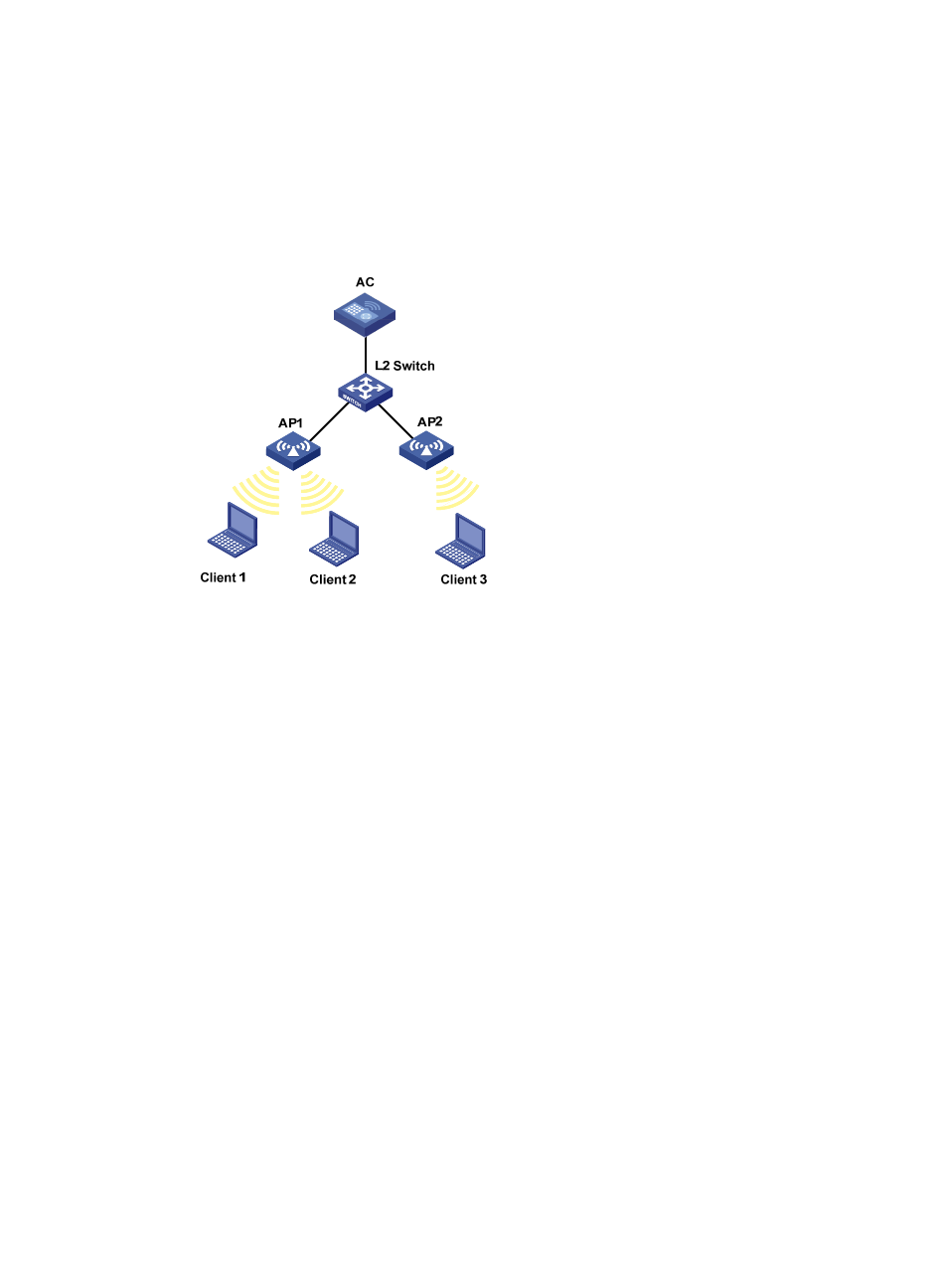Load-balancing methods – H3C Technologies H3C WX3000E Series Wireless Switches User Manual
Page 737

716
Traffic snapshot is considered for traffic mode load balancing.
As shown in
, Client 1 and Client 2 that run 802.11g are associated with AP 1. The AC
has traffic-mode load balancing configured: the maximum traffic threshold is 10%, and the
maximum traffic gap is 20%. Then, Client 3 wants to access the WLAN through AP 1. The
maximum traffic threshold and traffic gap (between AP 1 and AP 2) have been reached on AP 1,
so AP 1 rejects the request. Finally, Client 3 associates with AP 2.
Figure 748 Network diagram for traffic-mode load balancing
Load-balancing methods
The AC supports AP-based load balancing and group-based load balancing.
1.
AP-based load balancing
AP-based load balancing can be implemented either among APs or among the radios of an AP.
AP-based load balancing—APs can carry out either session-mode or traffic-mode load
balancing. An AP starts load balancing when the maximum threshold and gap are reached,
and it does not accept any association requests unless the load decreases below the maximum
threshold or the gap is less than the maximum gap. However, if a client has been denied more
than the specified maximum times, the AP considers that the client is unable to associate with
any other APs, and it accepts the association request from the client.
Radio-based load balancing—The radios of a balanced AP can carry out either session-mode
or traffic-mode load balancing. A radio starts load balancing when the maximum threshold and
gap are reached, and it will reject any association requests unless the load decreases below the
maximum threshold or the gap is less than the maximum gap. However, if a client has been
denied more than the specified maximum times, the AP considers that the client is unable to
associate with any other APs, and it accepts the association request from the client.
2.
Group-based load balancing
To balance loads among the radios of different APs, you can add them to the same load balancing
group.
The radios in a load balancing group can carry out either session-mode or traffic-mode load
balancing. The radios that are not added to any load balancing groups do not carry out load
balancing. A radio in a load balancing group starts load balancing when the maximum threshold
and gap are reached on it, and it does not accept any association requests unless the load
decreases below the maximum threshold or the gap is less than the maximum gap. However, if a
- H3C WX5500E Series Access Controllers H3C WX3500E Series Access Controllers H3C WX2500E Series Access Controllers H3C WX6000 Series Access Controllers H3C WX5000 Series Access Controllers H3C LSUM3WCMD0 Access Controller Module H3C LSUM1WCME0 Access Controller Module H3C LSRM1WCM2A1 Access Controller Module
